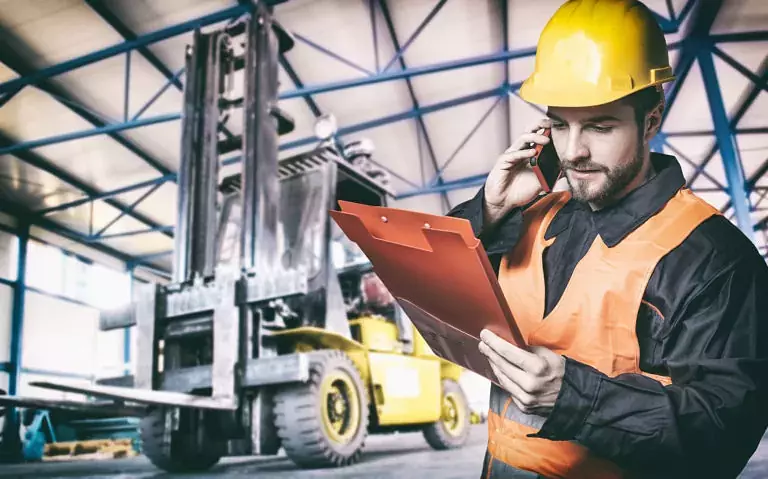 Are you in the market for a forklift and interested in acquiring a forklift? Are you unsure of how to find the best model for your specific material handling scenario? Do you have many concerns but do not know where to begin? Asking the right questions will get you the right answers. If you are looking to purchase a used forklift there are many key questions one should ask. Fortunately, we have narrowed the list down to five. If you are considering a used forklift for your fleet, learning of the service history, applicable attachments, the machine’s environmental uses and capabilities, and previous accidents are just scratching the surface. Nevertheless, this data is essential. Here are the five questions you should ask before you fork off the funds for the used forklift of your eye:
Are you in the market for a forklift and interested in acquiring a forklift? Are you unsure of how to find the best model for your specific material handling scenario? Do you have many concerns but do not know where to begin? Asking the right questions will get you the right answers. If you are looking to purchase a used forklift there are many key questions one should ask. Fortunately, we have narrowed the list down to five. If you are considering a used forklift for your fleet, learning of the service history, applicable attachments, the machine’s environmental uses and capabilities, and previous accidents are just scratching the surface. Nevertheless, this data is essential. Here are the five questions you should ask before you fork off the funds for the used forklift of your eye:
1) What is the machine’s service history?
It is imperative that you ask about how many hours the forklift has done over the span of its service. Generally speaking, the service history should be on file if the retailer is reliable and steadfast in maintenance regimes. If this information is unavailable it should raise red flags given the fact these details are collated in enhanced databases thanks to many computerized platforms and interfaces.
2) What are the work abilities?
Versatility is a key utility of any forklift. If you are going to make an investment in any vehicle it is rudimentary to ascertain the true capabilities of the machine. Furthermore, it is key to determine where and when the forklift can work, as it will drive productivity across the supply chain. According to ACE Equipment, knowing what load sizes and weights it can handle is also critical to understand.
3) Are there any additional attachments available with this specific forklift?
Embellishing upon the principle of versatility, a forklift that can utilize attachments adds even more flexibility to your fleet. If your forklift is a jack of all trades and can feature a plethora of attachments to aid in the most specific projects and initiatives this only makes the investment that much more of an asset to your enterprise.
4) What type of environment was this machine previously used in?
Some forklifts are used in heavy operations. Some are designed to work outdoors. Others are used in narrow aisles and high mezzanines. Understanding and appreciating where the machine was most efficient and used best can help you determine the efficacy of the acquisition. If you are predominantly engaged in small-scale operations you may not need a full-fledged combustion forklift to tackle the extra workloads.
5) Has this forklift been in any previous accidents?
When you buy a car, you receive a report of previous accidents. In doing so, the risks are assessed, evaluated, and taken into consideration. If the forklift was involved in a serious incident that could be sound rationale for why the vehicle may seem underpriced. These narratives are important to pay attention to.
